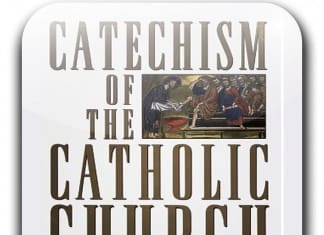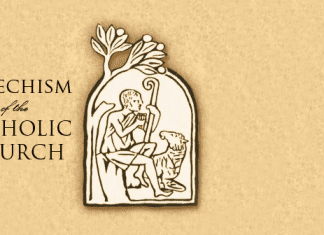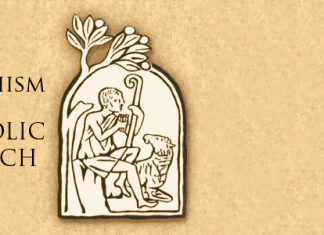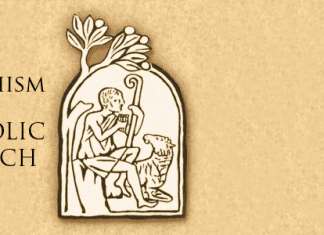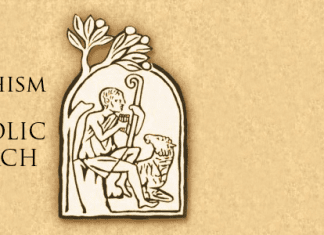Catechism of The Catholic Church #2113
2113 Idolatry not only refers to false pagan worship. It remains a constant temptation to faith. Idolatry consists in divinizing what is not God....
Catechism of The Catholic Church #2548
2548 Desire for true happiness frees man from his immoderate attachment to the goods of this world so that he can find his fulfillment in the vision and beatitude of God. "The promise [of seeing God] surpasses all beatitude.... In Scripture, to see is to possess.... Whoever sees God has obtained all the goods of which he can conceive."
Catechism of The Catholic Church #1949
1949 Called to beatitude but wounded by sin, man stands in need of salvation from God. Divine help comes to him in Christ through...
Catechism of The Catholic Church #555
555 For a moment Jesus discloses his divine glory, confirming Peter's confession. He also reveals that he will have to go by the way of the cross at Jerusalem in order to "enter into his glory". Moses and Elijah had seen God's glory on the Mountain; the Law and the Prophets had announced the Messiah's sufferings. Christ's Passion is the will of the Father: the Son acts as God's servant; the cloud indicates the presence of the Holy Spirit. "The whole Trinity appeared: the Father in the voice; the Son in the man; the Spirit in the shining cloud."
Catechism of The Catholic Church #613
613 Christ's death is both the Paschal sacrifice that accomplishes the definitive redemption of men, through "the Lamb of God, who takes away the sin of the world", and the sacrifice of the New Covenant, which restores man to communion with God by reconciling him to God through the "blood of the covenant, which was poured out for many for the forgiveness of sins".
Catechism Of The Catholic Church #2448
2448 "In its various forms - material deprivation, unjust oppression, physical and psychological illness and death - human misery is the obvious sign of the inherited condition of frailty and need for salvation in which man finds himself as a consequence of original sin. This misery elicited the compassion of Christ the Savior, who willingly took it upon himself and identified himself with the least of his brethren. Hence, those who are oppressed by poverty are the object of a preferential love on the part of the Church which, since her origin and in spite of the failings of many of her members, has not ceased to work for their relief, defense, and liberation through numerous works of charity which remain indispensable always and everywhere.”
Catechism of The Catholic Church #540
540 Jesus' temptation reveals the way in which the Son of God is Messiah, contrary to the way Satan proposes to him and the way men wish to attribute to him.This is why Christ vanquished the Tempter for us: "For we have not a high priest who is unable to sympathize with our weaknesses, but one who in every respect has been tested as we are, yet without sinning."By the solemn forty days of Lent the Church unites herself each year to the mystery of Jesus in the desert.
Catechism of The Catholic Church #391
391 Behind the disobedient choice of our first parents lurks a seductive voice, opposed to God, which makes them fall into death out of envy. Scripture and the Church's Tradition see in this being a fallen angel, called "Satan" or the "devil". The Church teaches that Satan was at first a good angel, made by God: "The devil and the other demons were indeed created naturally good by God, but they became evil by their own doing."
Catechism of The Catholic Church #2733
2733 Another temptation, to which presumption opens the gate, is acedia. the spiritual writers understand by this a form of depression due to lax...
Catechism of The Catholic Church #2309
2309 The strict conditions for legitimate defense by military force require rigorous consideration. The gravity of such a decision makes it subject to rigorous...


